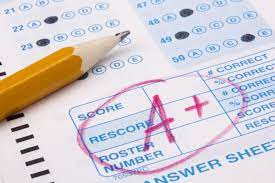After doing some more research on different assessment types I had found that there are four additional assessments rather than just the summative and formative types. The six different assessments used in educational settings are:
- Diagnostic Assessments
- Formative Assessments
- Summative Assessments
- Ipsative Assessments
- Norm-References Assessments
- Criterion-referenced Assessments
Below I will go into further detail regarding the different aspects and benefits associated with each Educational Assessment.
Diagnostic Assessments:
This form of assessment allows for teachers to evaluate a student’s current progress and understanding of subject material prior to a lesson. This allows for the teacher to plan out their lesson plan accordingly to focus on aspects that a student may need more work on as indicated by the results of either a short quiz or student reflections in the form of created mind-maps.
Formative Assessments
This type of assessment allows for teachers to gauge a student’s understanding over the course of a lesson plan and allows them to adjust their teaching strategies to better fit the student’s needs. Essentially it allows for you to keep track of how your students are learning by checking their understanding periodically with the use of Class discussions, group projects, short quizzes, etc.
Summative Assessments
These assessments measure student progress after the completion of a subject through the use of a cumulative test (midterms/finals). This form of assessment is usually paired with a more “teach to the test” method of instruction and doesn’t always lead to the student retaining the information being taught. It does hold value in keeping grading objective across the board and removes any bias in measuring a student’s progress in the course.
Ipsative Assessments
This form of assessment allows students to compare their initial results with a second try or attempt, motivating them to set goals and improve their understanding of a topic. A good example of this are professors who allow for multiple attempts at an online quiz allowing for students to recognize their mistakes and learn from them.
Norm-referenced Assessments
This type of assessment compares a student to their peers with marking criteria based off national standards allowing for the measurement of student achievement and analysis of educational trends on a large scale. An example of this would be the SAT and other admissions tests.
Criterion-referenced Assessments
These assessments are based on standards and criteria that are already established and made available to a student prior to the assignment deadline/hand-in. Each student in this case is graded to provide insight into their current strengths and highlights areas which need improvement. An example of this would be when you are going for you driver licensing test.
References:
6 Types of Assessment (and How to Use Them) (2021). Retrieved from: https://www.prodigygame.com/main-en/blog/types-of-assessment/

Thank you for sharing more types of assessments! I think they are very helpful for studying more and comparing with the type of assessments. Which assessments do you prefer more? I wonder which assessment combined together will be the best for learners and instructors?
I did my blog post on the same topic! I narrow my assessment to only four so it is very interesting to see that there are many possibilities for assessment types. I think applying more than one learning assessment provides the best outcome. The teacher can identify any gaps that the student’s may be having and see areas that require extra attention.